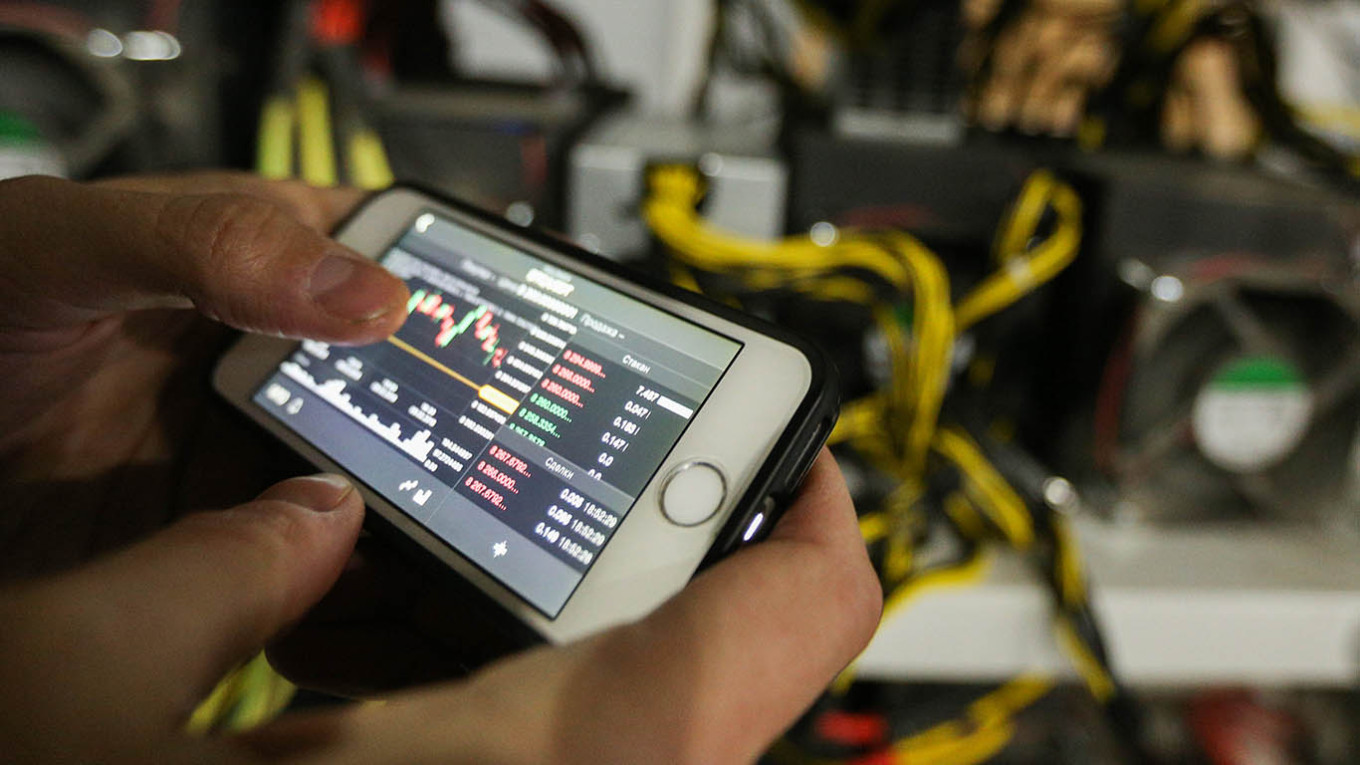A cryptocurrency token launched in Kyrgyzstan to help Russia facilitate cross-border payments and bypass international sanctions has moved $9.3 billion in transactions in just four months, the Financial Times reported Wednesday.
The stablecoin, which was launched in February and named A7A5, is pegged to the Russian ruble and has been linked to sanctioned Moldovan businessman Ilan Şor.
Its launch coincided with the founding of a new cryptocurrency exchange called Grinex, which supports trading in A7A5, Russian rubles and Tether, a popular dollar-pegged stablecoin.
There are currently 12 billion A7A5 tokens in circulation with a value equivalent to $156 million, according to FT.
An analysis of crypto wallets linked to Grinex conducted by FT found that a relatively small group of users carry out daily transfers that often amount to several times the coin’s volume.
In aggregate, transactions involving A7A5 have reached $9.3 billion.
The coin is backed by ruble deposits at Promsvyazbank, a major lender to Russia’s defense sector that is under strict sanctions from the U.S., the U.K. and the EU.
A7, the coin’s issuing company, is co-owned by Ilan Şor, a Moldovan businessman convicted of embezzling $1 billion from the nation’s banking system, nearly causing a national bankruptcy. Şor obtained Russian citizenship after fleeing house arrest in Moldova.
Şor remains an active force in his Moldovan politics. According to authorities in Chisinau, Şor has financed numerous political parties and engaged in vote-buying during the recent presidential election and constitutional referendum campaigns.
Şor has denied those accusations as an “absurd spectacle.”
He is currently under sanctions from the EU, U.K. and Canada.
The use of cryptocurrencies has emerged as a way for Russia to sidestep sanctions and Russian banks’ exclusion from the SWIFT global financial messaging network.
Eliza Thomas, a senior investigator at the Center for Information Resilience (CIR) in London, told FT that “Russian business figures and government officials have been talking for a while about how they might use cryptocurrency to evade sanctions in a large-scale way, particularly by creating their own stablecoin.”
A recent CIR report indicated that Moscow is also utilizing A7A5 to finance political meddling in foreign countries. The center found that several domains involved in such operations in Moldova shared IP addresses with A7 and A7A5 websites.
A7A5 told FT in a statement that it had “co-operated with the technical team of A7 at the early stage,” but “decided to separate completely due to different visions of development strategy.”
Bloomberg reported in January that when A7 was registered in September 2024, Şor held a 51% stake, while Promsvyazbank held 49%. The company describes itself as “an ambitious financial sector project launched by a major state bank.”
Leonid Shumakov, chief of A7A5, told FT that Kyrgyzstan was selected as the location because it is a “friendly jurisdiction that is not subject to sanctions.”
“It is no secret that this jurisdiction is currently helping a lot to cope with the pressure [Russia] is under,” he added.
A Message from The Moscow Times:
Dear readers,
We are facing unprecedented challenges. Russia's Prosecutor General's Office has designated The Moscow Times as an "undesirable" organization, criminalizing our work and putting our staff at risk of prosecution. This follows our earlier unjust labeling as a "foreign agent."
These actions are direct attempts to silence independent journalism in Russia. The authorities claim our work "discredits the decisions of the Russian leadership." We see things differently: we strive to provide accurate, unbiased reporting on Russia.
We, the journalists of The Moscow Times, refuse to be silenced. But to continue our work, we need your help.
Your support, no matter how small, makes a world of difference. If you can, please support us monthly starting from just $2. It's quick to set up, and every contribution makes a significant impact.
By supporting The Moscow Times, you're defending open, independent journalism in the face of repression. Thank you for standing with us.
Remind me later.






